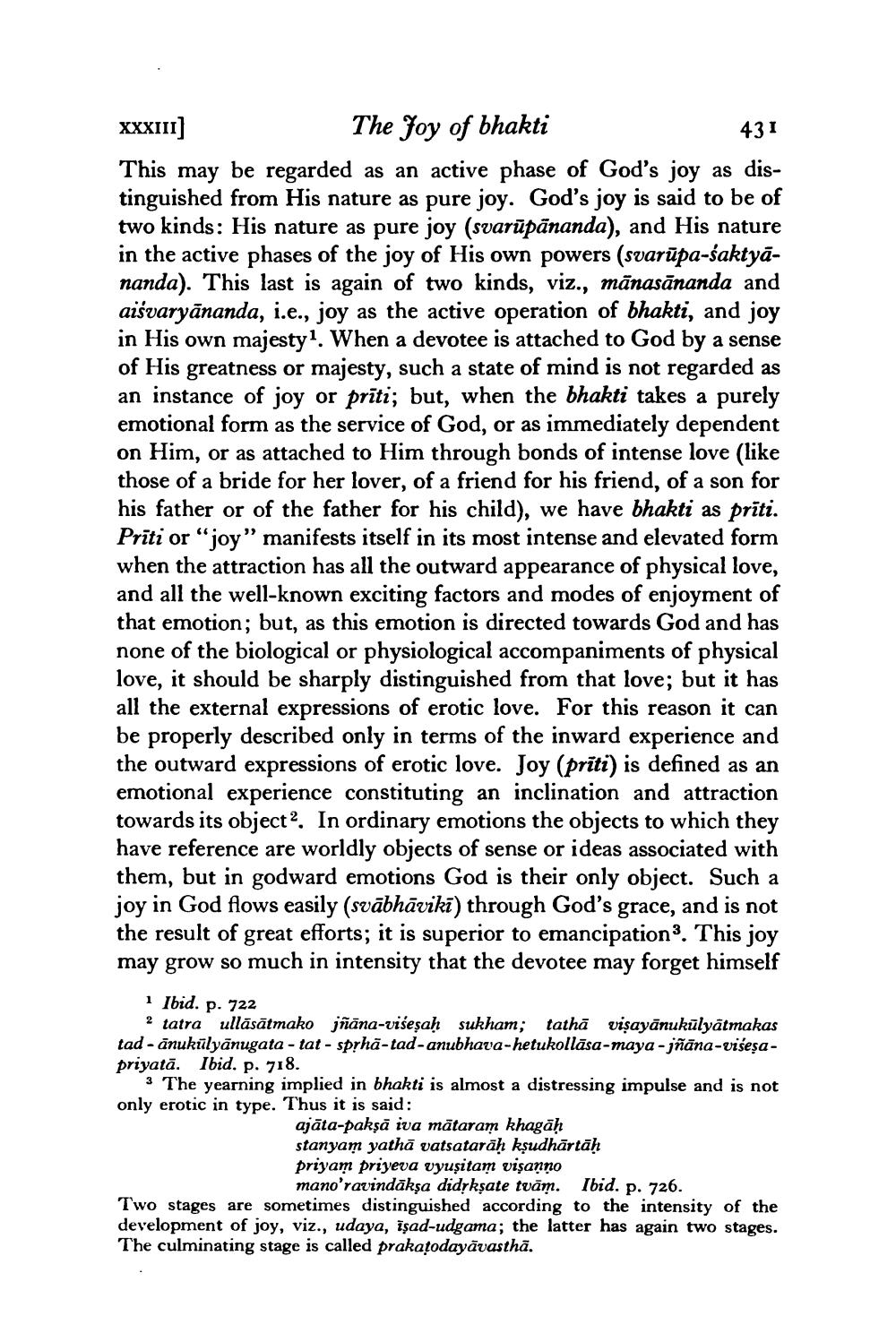________________
XXXIII] The Joy of bhakti
431 This may be regarded as an active phase of God's joy as distinguished from His nature as pure joy. God's joy is said to be of two kinds: His nature as pure joy (svarūpānanda), and His nature in the active phases of the joy of His own powers (svarūpa-śaktyānanda). This last is again of two kinds, viz., mānasānanda and aišvaryānanda, i.e., joy as the active operation of bhakti, and joy in His own majestyl. When a devotee is attached to God by a sense of His greatness or majesty, such a state of mind is not regarded as an instance of joy or prīti; but, when the bhakti takes a purely emotional form as the service of God, or as immediately dependent on Him, or as attached to Him through bonds of intense love (like those of a bride for her lover, of a friend for his friend, of a son for his father or of the father for his child), we have bhakti as prīti. Prīti or "joy” manifests itself in its most intense and elevated form when the attraction has all the outward appearance of physical love, and all the well-known exciting factors and modes of enjoyment of that emotion; but, as this emotion is directed towards God and has none of the biological or physiological accompaniments of physical love, it should be sharply distinguished from that love; but it has all the external expressions of erotic love. For this reason it can be properly described only in terms of the inward experience and the outward expressions of erotic love. Joy (prīti) is defined as an emotional experience constituting an inclination and attraction towards its object 2. In ordinary emotions the objects to which they have reference are worldly objects of sense or ideas associated with them, but in godward emotions God is their only object. Such a joy in God flows easily (svābhāvikī) through God's grace, and is not the result of great efforts; it is superior to emancipation”. This joy may grow so much in intensity that the devotee may forget himself
1 Ibid. p. 722
2 tatra ullāsātmako jñāna-visesah sukham; tathā vişayānukulyatmakas tad - ānukūlyānugata - tat - sprhā-tad-anubhava-hetukollāsa-maya-jñāna-visesapriyatā. Ibid. p. 718.
3 The yearning implied in bhakti is almost a distressing impulse and is not only erotic in type. Thus it is said:
ajāta-pakşā iva mätaram khagah stanyam yathā vatsatarāḥ kṣudhārtāḥ priyam priyeva vyuşitam visanno
mano'ravindākṣa didykșate tvām. Ibid. p. 726. Two stages are sometimes distinguished according to the intensity of the development of joy, viz., udaya, işad-udgama; the latter has again two stages. The culminating stage is called prakatodayāvasthā.




